Last updated: February 6, 2024
The Brickpit Ring Walk is a fun and educational tourist attraction in Sydney Olympic Park, situated high above a large pond where once a flourishing brickyard was.
This unique circular walkway structure gives visitors the opportunity to have a bird’s eye view of the pond beneath. This pond now functions as a protected habitat for endangered frogs and other wildlife.
This article explains the history behind the Brickpit Ring Walk, how best to get there, and what to do nearby.
| Brickpit Ring Walk | |
|---|---|
| Distance: | 550 m (circuit) |
| Height: | 18.5 m |
| Duration: | 20 minutes |
| Grade: | Easy |
| Dogs: | Not allowed |
Short video of the Brickpit Ring Walk:
How to Get There
The Brickpit Ring is located in the centre of Sydney Olympic Park, next door to the Sydney Showground Stadium.
There are two entry points to the Brickpit Ring. The first is on Australia Avenue, and the second is on Marjorie Jackson Parkway. Both these entry points have dedicated parking areas.
Parking is typically free (with a time limit), but make sure to check the signage and see if there are any events in the area.
Public transport is also a good option. The Sydney Olympic Park train station is only a few hundred meters from the Brickpit Ring, with many cafes nearby should you get hungry or thirsty after exploring the Brickpit Ring.
Map
Here is a map of the Brickpit Ring with the two entry points and car parking areas marked.
- P1: Marjorie Jackson Parkway (Google Maps location)
- P2: Australia Avenue (Google Maps location)
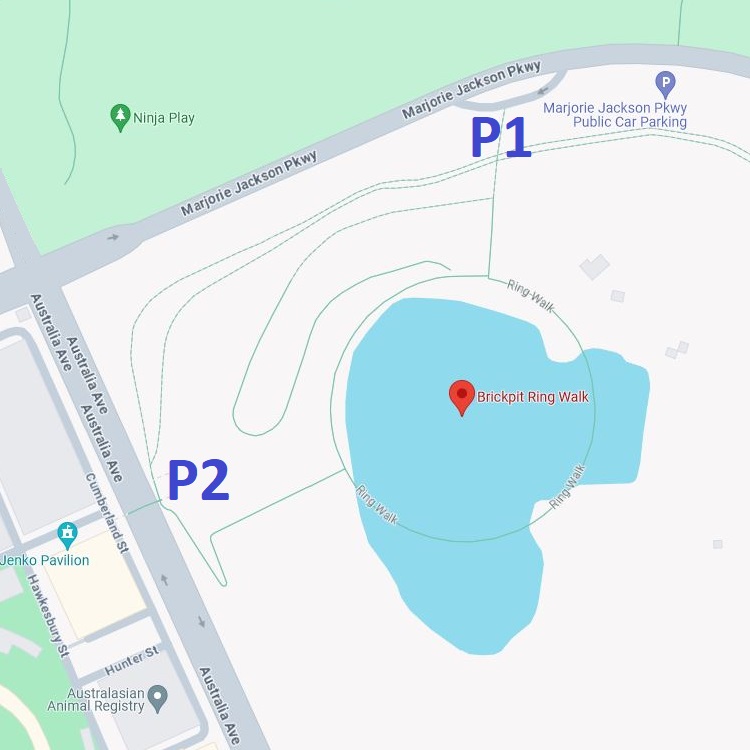
About the Brickpit Ring Walk
The Brickpit Ring Walk is much more than just a short walk with lovely views.
Apart from the fact that it’s an architecturally impressive structure, it also has quite a rich history.
State Brickworks
The Brickpit Ring was named after the State Brickworks, a Homebush-based company established in 1911 by the New South Wales government to meet the increasing demand for public housing.
Until then, the private Metropolitan Brick Company had monopolistic control of Sydney’s brickyards. With the establishment of the State Brickworks, the government was able to cut public construction costs significantly.
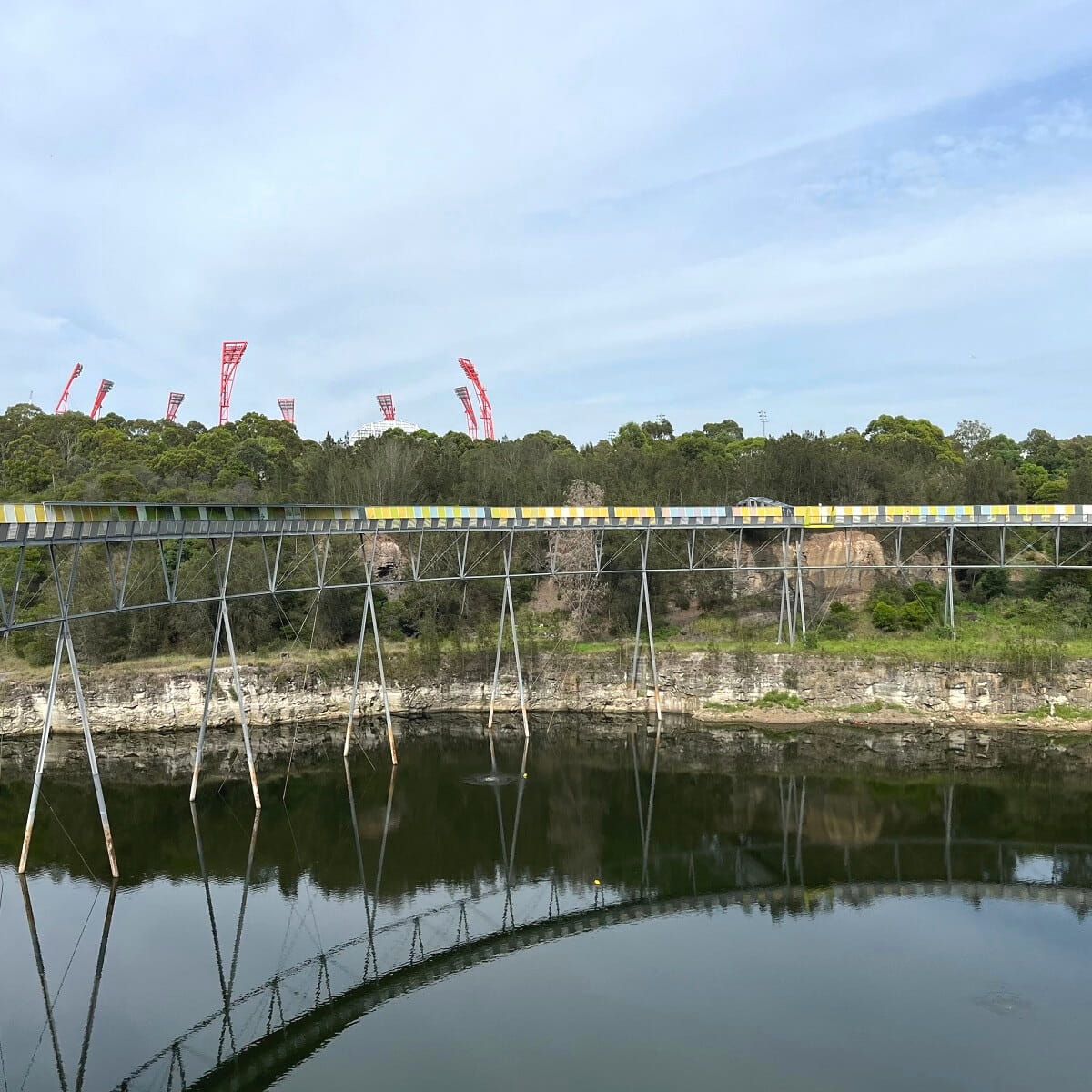
State Bricks initially flourished in the 1920s, driven by strong urban growth, but slumped during the Depression years from 1929 until 1933.
Following this downturn, the company was sold in 1936 to a group of private brickyards, and the Brickpit eventually closed.
Post World War II
During the Second World War, the site was used as an ammunition depot by the Navy and reclaimed by the state government after the war. The Brickpit was then restored to keep up with the housing boom of the 1950s.
This boom lasted until the 1980s, and the State Brickworks closed for good in 1988. The nearby State Abattoirs met the same fate, closing down in that very same year.
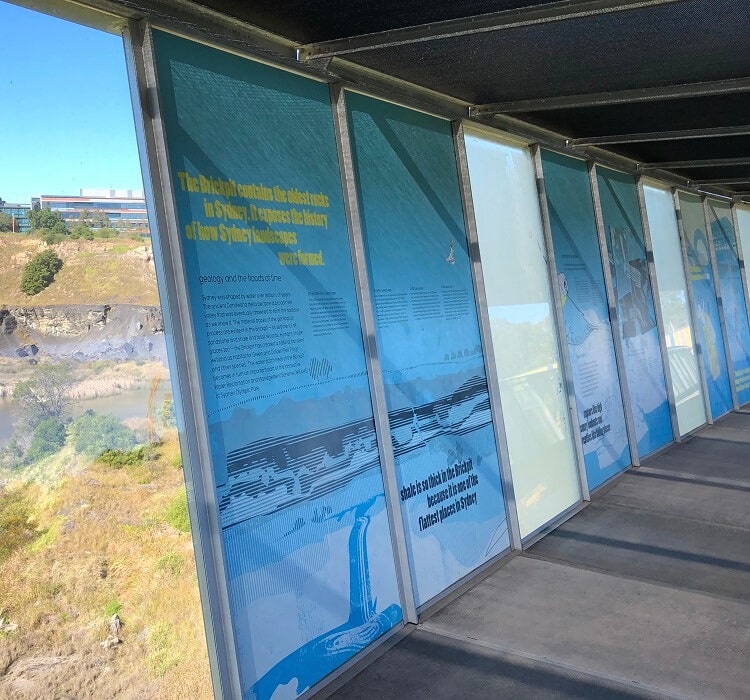
This marked the end of strong industrial activity in the Homebush and Rhodes area and the beginning of a decades-long redevelopment process.
It is estimated that 3 billion bricks were produced at the Brickpit during the 60 years of its existence, with many Sydney houses built with bricks coming out of Homebush.
The 2000 Summer Olympics
In preparation for the 2000 Sydney Olympic and Paralympic Games, various ideas for the redevelopment of the old Brickpit site were put forward.
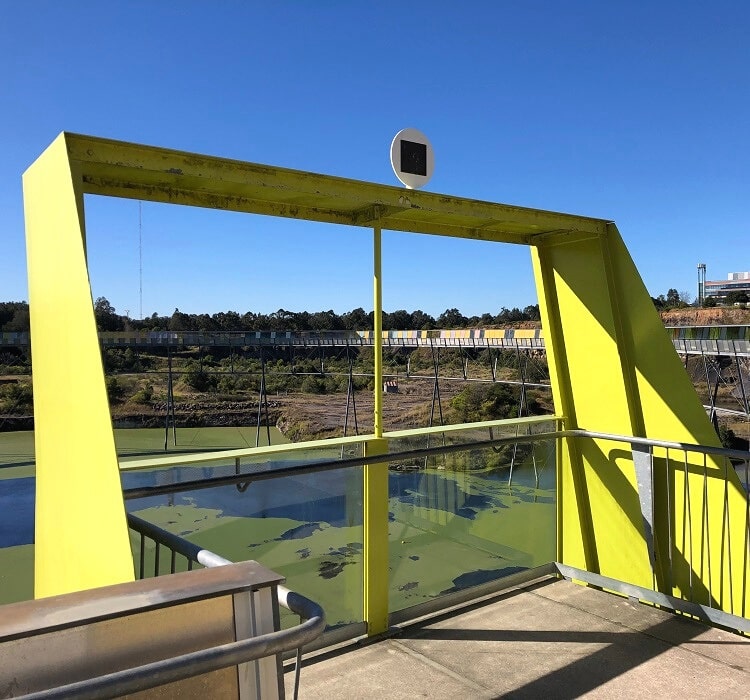
But lo and behold, Green and Golden Bell Frogs were discovered at the site, and all plans to redevelop the site into an Olympic venue were halted.
Instead, the site was transformed into a water storage and frog habitat.
Tourist Attraction
In 2005, the Brickpit Ring Walk above the pond was constructed as a tourist attraction, allowing visitors to experience the current and historic use of the site.
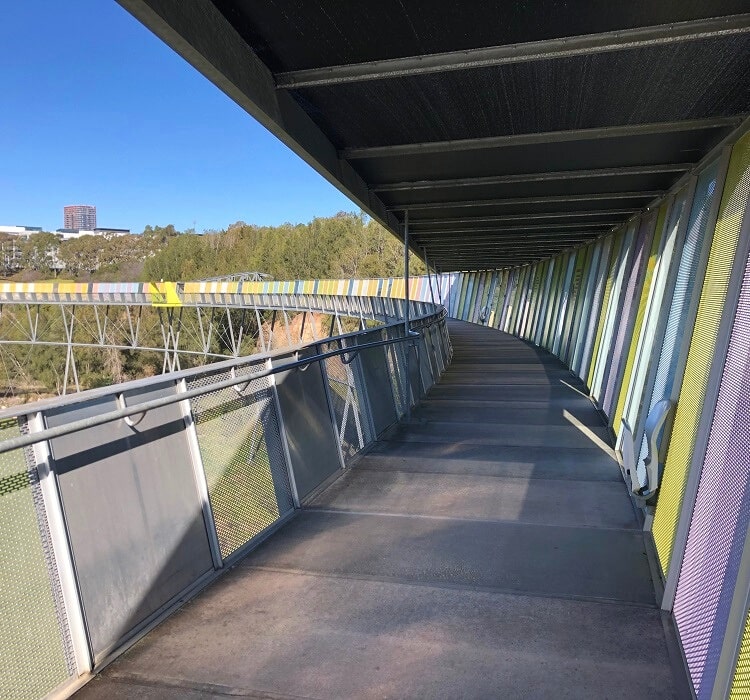
What makes the walk so interesting and educational are the various multimedia exhibits that explain more about the history of the brickworks site and Sydney’s once flourishing brick industry in general.
Lots can also be learned about the endangered Green and Golden Bell Frogs and other wildlife species that now call the pond below the structure their home.
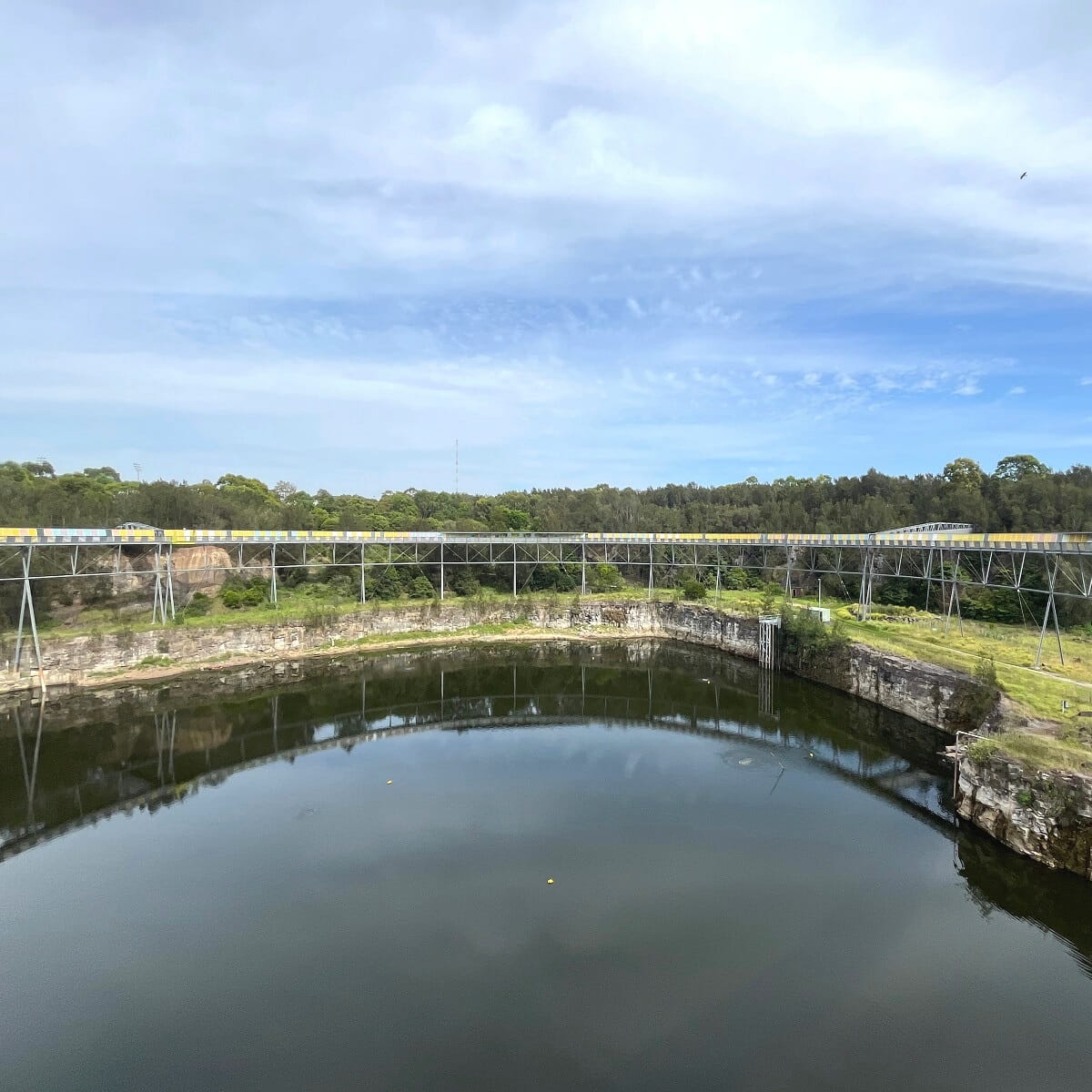
If you have more time to spend in the area after exploring the Brickpit Ring, check out the shipwrecks of Homebush Bay. Five wrecks can be discovered via a friendly walking trail along the foreshore of Sydney Olympic Park.
Read more about the shipwrecks of Homebush Bay.
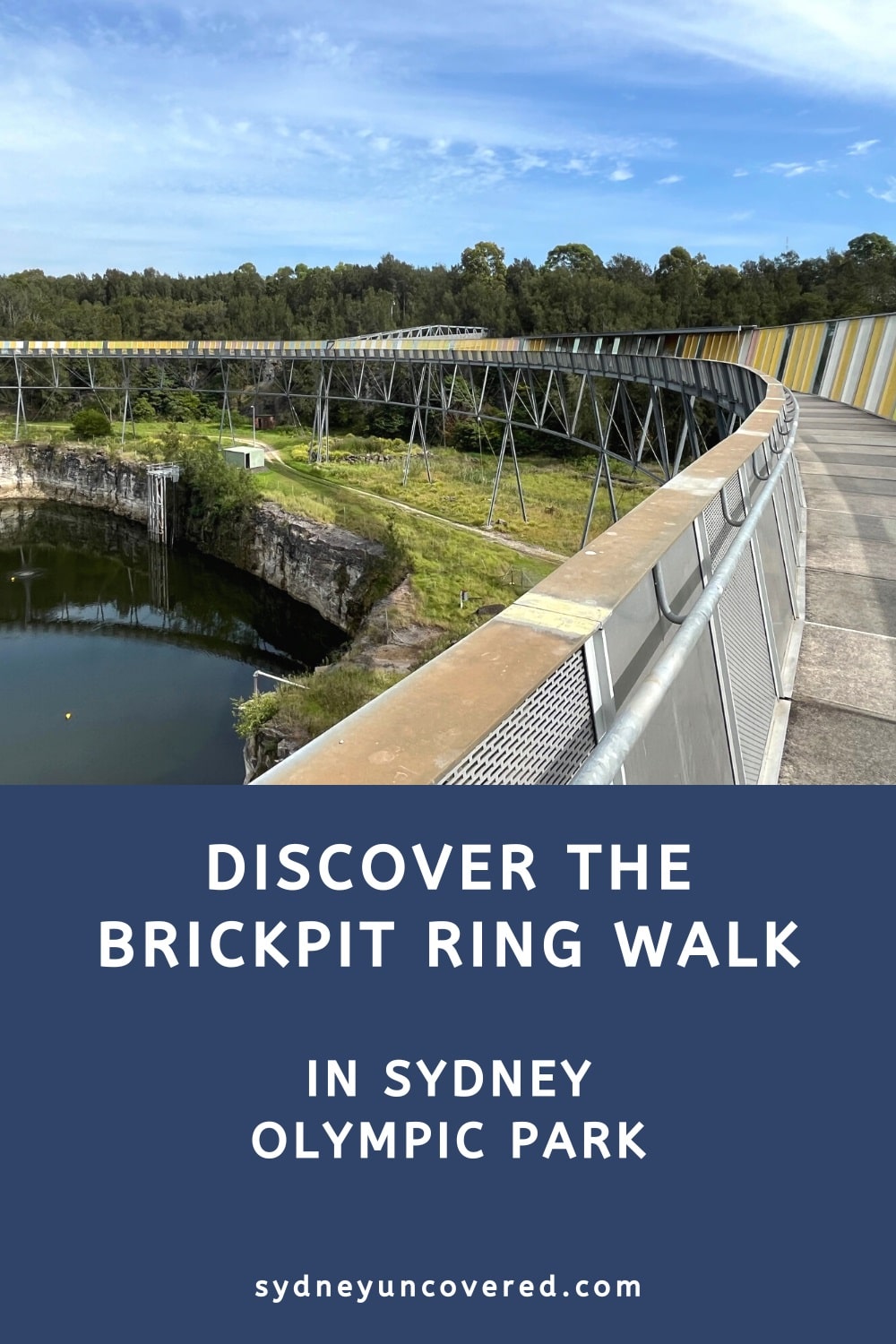
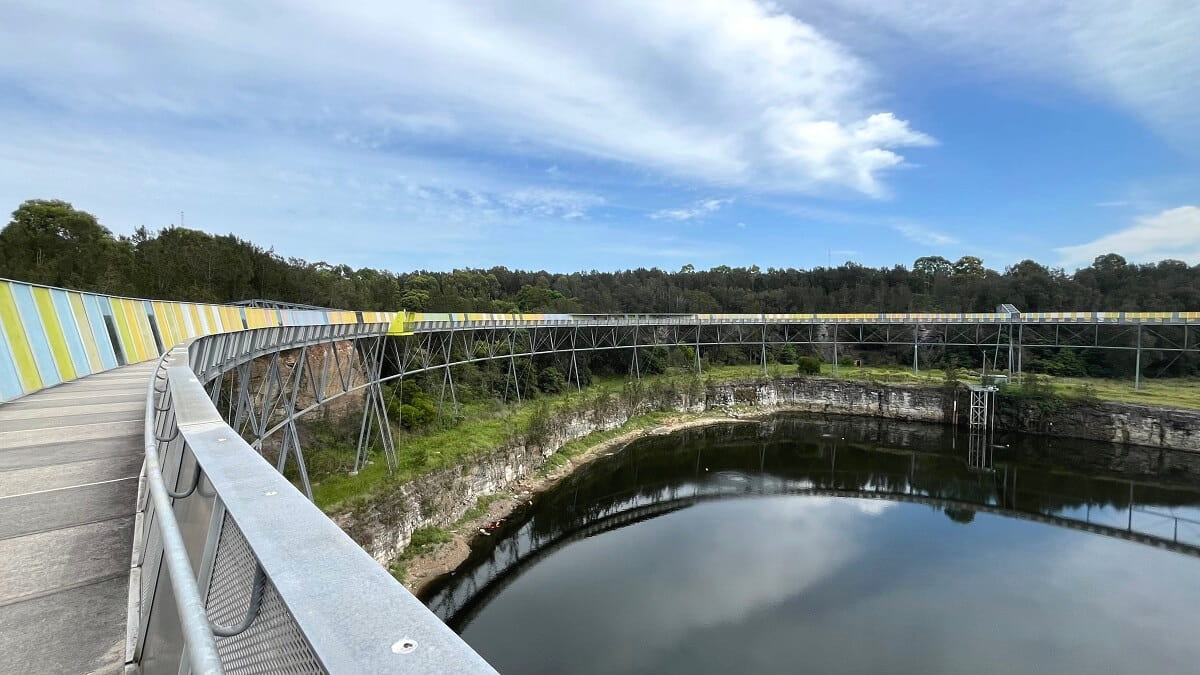
The information picture boards displayed for the history of the site and brick making are extremely weathered, fading and peeling away. It would be advisable to replace these.
Thanks for the feedback, Malcolm, and you’re right.
It might be a good idea to send a note to City of Parramatta Council. Hopefully they can update or replace the information picture boards promptly.